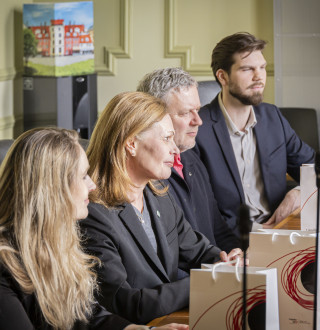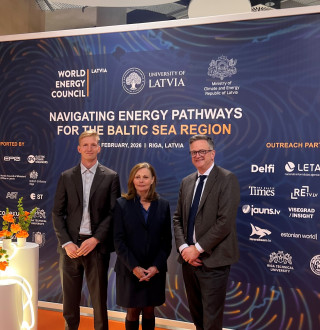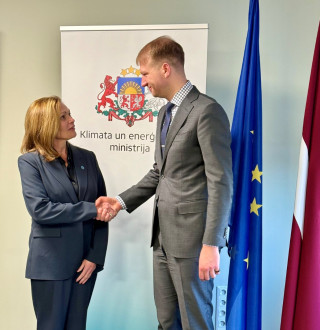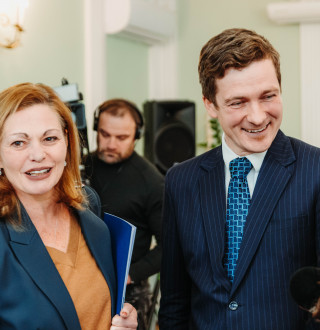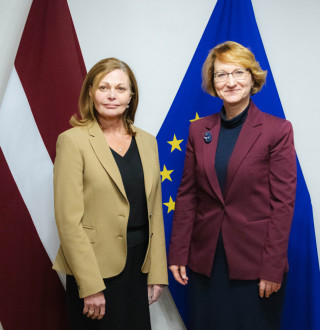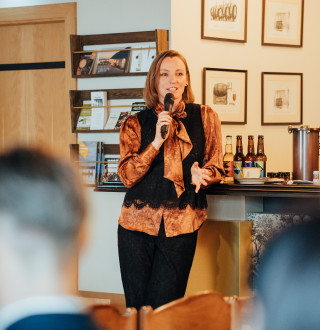On March 14, Stefan Eriksson, Director of the Nordic Council of Ministers’ Office in Latvia, joined Romāns Šmeļovs for a talk at the LR4 programme “Домская площадь” in the Russian language. During the interview, he discussed the Office’s activities, outlined ongoing projects and shared the Nordic perspective on some of today’s most topical matters.
Asked about the purpose and main activities of the Office, Stefan Eriksson explained the primary focus on soft power initiatives aimed at strengthening ties among the Baltic States and the Nordic countries. This is achieved through joint cooperation projects, the exchange of best practices, study visits and maintaining partnerships with the five Nordic countries – Denmark, Finland, Iceland, Norway and Sweden – and three autonomous territories – Åland, the Faroe Islands and Greenland. He also noted that the increasingly complex geopolitical landscape has strengthened the ties among the countries. However, political and military security matters fall outside the scope of the Nordic Council of Ministers’ Office and remain the responsibility of individual countries and their embassies.
Briefly outlining the history of the Office, Stefan Eriksson highlighted the long-standing cooperation among the Nordic countries and the establishment of the representative units in each of the three Baltic States in 1991. Over time, the role of the Office has evolved. Previously known as the Nordic Information Centre, it primarily focused on Nordic language courses. Today, the scope is much broader. While language courses are no longer offered, the Office actively supports cooperation projects with Latvian organisations across various sectors. It also manages mobility programmes for representatives of NGOs, culture and arts professionals, and employees at state and municipality institutions, enabling them to go on work visits to the Nordic countries.
The Nordic Council of Ministers’ Office collaborates on a wide range of projects with local partner organisations, all aligned with its overarching goal of strengthening civil society and promoting democratic values in Latvia. One of the most recent projects is ‘Signālvēlēšanas’ (mock election at schools), which is an example of the Nordic best practice brought to Latvia. This educational initiative is carried out in partnership with the European Movement in Latvia and the Latvian Youth Council. The Office has also established long-term cooperation with the Open Society Foundation DOTS, supporting introduction of the Finnish dialogue circles method in Latvia.
When asked whether the Nordic countries intended to follow the example of the U.S. by cutting financial support to other countries, Stefan Eriksson clarified that such matter is not on the agenda. Moreover, he emphasised the long-standing tradition of the Nordic countries to support international aid initiatives, as reflected in their commitment to allocating 1% of GDP to such efforts. In recent years, a significant portion of this support has been directed toward Ukraine. Nevertheless, support for the Baltic States remains, as regional cooperation is growing ever closer.
Video and audio recording of the interview (in the Russian language) is available on the LR4 website or via the following link.
